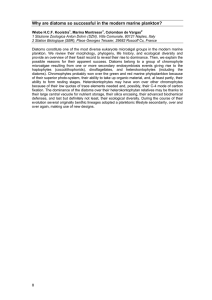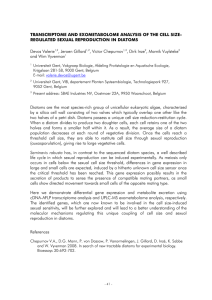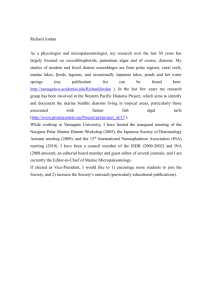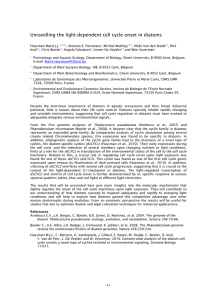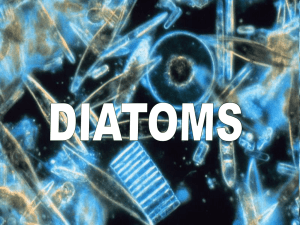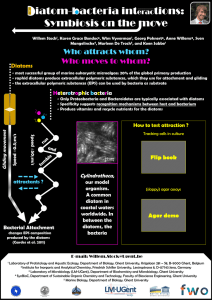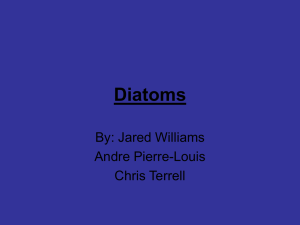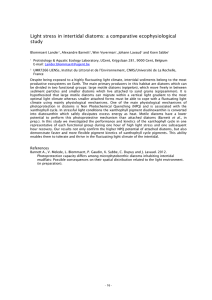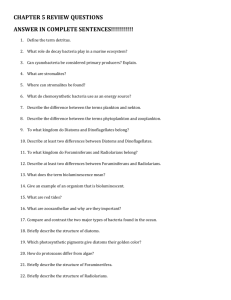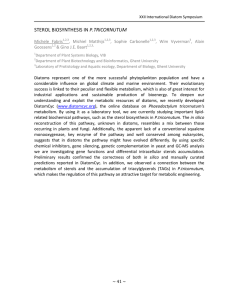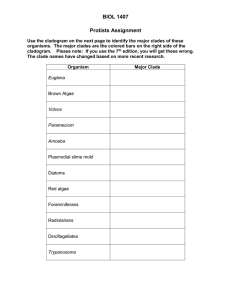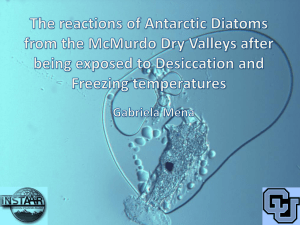CONSERVATION O F D I A T O M ...
advertisement
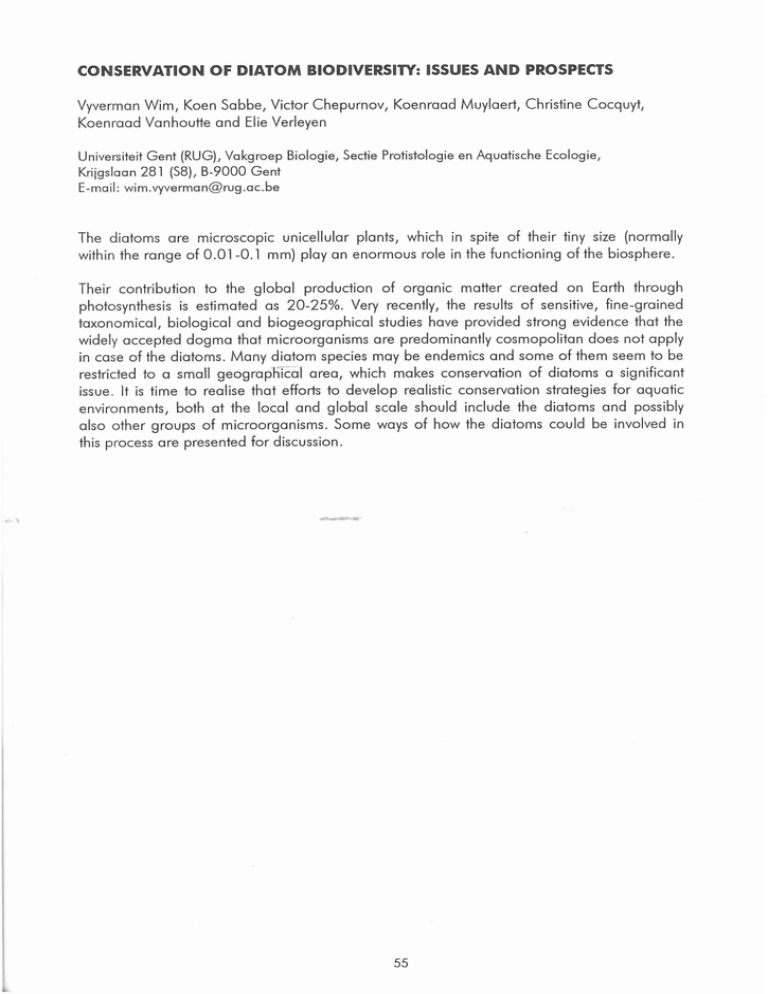
CONSERVATION O F D I A T O M BIODIVERSITY: ISSUES A N D PROSPECTS Vyverman Wim, Koen Sabbe, Victor Chepurnov, Koenraad Muylaert, Christine Cocquyt, Koenraad Vanhoutte and Elie Verleyen Universiteit Gent (RUG), Vakgroep Biologie, Sectie Protistologie en Aquatische Ecologie, Kriigslaan 2 8 1 (S8), 8-9000 Gent E-mail: wim.vyverman@rug.ac.be The diatoms are microscopic unicellular plants, which in spite of their tiny size (normally within the range of 0.01 -0.1 mm) play an enormous role in the functioning of the biosphere. Their contribution to the global production of organic matter created on Earth through photosynthesis is estimated as 20-25%. Very recently, the results of sensitive, fine-grained taxonomical, biological and biogeographical studies have provided strong evidence that the widely accepted dogma that microorganisms are predominantly cosmopolitan does not apply in case of the diatoms. Many diatom species may be endemics and some of them seem to be restricted to a small geographical area, which makes conservation of diatoms a significant issue. It is time to realise that efforts to develop realistic conservation strategies for aquatic environments, both at the local and global scale should include the diatoms and possibly also other groups of microorganisms. Some ways of how the diatoms could be involved in this process are presented for discussion.
